Q&A with Peter Leahy – Former Chief of Army (Australia)
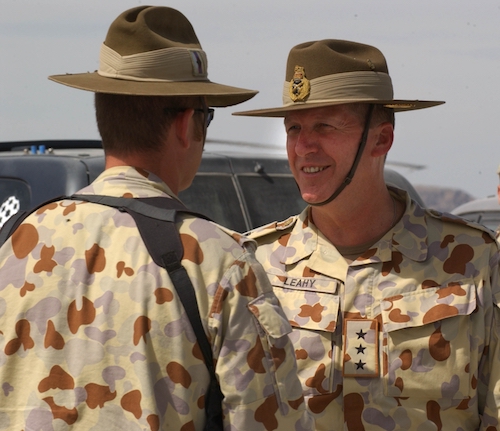
After 37 years of service as a soldier in the Australian Army, Peter Leahy retired in July 2008 at the rank of Lieutenant General and had been appointed as Chief of the Army for six years. Peter has an extensive background in international affairs and the military, and now currently lectures at the University of Canberra teaching the National Security unit (8246) and the unit The Challenge of Modern Terrorism (8724).
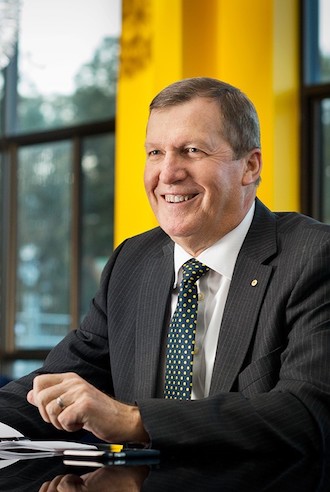
Since leaving the Army, Peter has also been appointed to the Boards of Codan Limited, Citadel Group Limited and Electro Optic Systems Holdings Limited. He is also Chairman of Soldier On, the Salvation Army Red Shield Appeal Committee in the ACT, the Australian International Military Games, which will run the Invictus Games in Sydney 2018, and he is also a Trustee of the Prince’s Charities Australia. In addition to these, in government related appointment, Peter is also currently a member of the First Principles Review of Defence, an advisory committee to Defence and to the Government.
Khoi Tung Ngo sat down with Peter Leahy to discuss his background in the Australian Defence Force and his teaching at the University of Canberra.
Q. Are there any parallels in the two fields of Army and teaching?
A. There are some parallels, you’re around young people, around people who are looking for what they’re going to do in life. People who need some encouragement or praise. People who are sometimes in the wrong place, and it’s generally dealing with people, communicating to people and giving them a sense that they can achieve things.
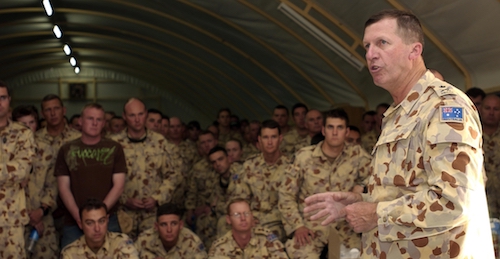
Q. How did you find yourself to be in the role of Chief of Army?
A. Defence has this promotion system where every four to six years you get into that promotion zone, and so I kept on getting promoted. As a Lieutenant Colonel I worked here at headquarters as the military assistant for the Chief of the General Staff back in 1993. From there I got noticed, people saw that I could write, saw that I could write speeches, and saw that I was thinking about the future of the Army. I had appointments that were more senior and that were frankly more difficult. Essentially I was just doing my job, being in the right place at the right time, and I had people that set good examples for me, and I emulated on that.
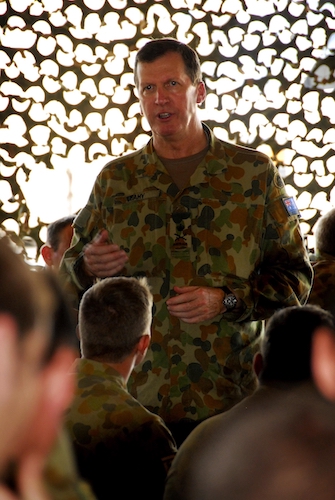
Q. What did it mean for you to be in that role?
A. It was a great honour, a great responsibility and a privilege, in that, the Army is a national institution, going on now for 118 years. I saw myself as a temporary steward of it, and that I certainly wanted to leave it better than I found it, and I found it pretty good. To be seen as someone as a leader of a national institution it was also a little daunting at time, in that you are responsible.
People often ask do I have any regrets. I think as part of the reform program I didn’t ask for enough at front, and we had to go back and go for a second go, and so I don’t think I was bold enough in asking for more.
Q. How has your military career shaped the career that you’re in now?
A. I am a teacher and I enjoy lecturing and teaching. I don’t consider myself as an academic, but as a teacher teaching at university using the skills that I have learnt as a soldier, and that’s dealing with people, being enthusiastic, putting across ideas, challenging people to think about those ideas; I am teaching you guys not what to think, but how to think. A lifetime involvement and an interest in international affairs, an appetite to read, think and enquire, trying to get to the bottom of ideas, asking so what, what does it mean, and not accepting what you see on the surface was all a part of what soldiering has taught me.

If I look at the values of the Army, which says with courage, initiative, respect and team work; Courage not only in the battle sense but in the moral sense, in doing the right thing; The initiative is getting up and doing something; Teamwork is remembering that you work as part of a team; and so hopefully I have brought this into the way I teach and work at university.
Q. Where do you see yourself in the future?
A. I think I’ll hang on for the ride. As I left the Army, and I fell into the university, I think I put myself in the space where I thought the university would be my second career, and that I would supplement it with a few boards, i.e. charity boards and commercial boards. I am now getting to a point to where after ten years here, I see that the boards are becoming a portfolio third career, and that it will be supplemented by a bit of the university. But I don’t see myself retiring. I enjoy the intellectual student relation, the ability through the charity to help people, and through the board be involved mostly in the technology areas, and I enjoy making technology work for people.
Moving to the University of Canberra, Peter Leahy founded the National Security Institute, and also plays an active role in making commentary on defence and security matters on radio, print media and television in Australia.
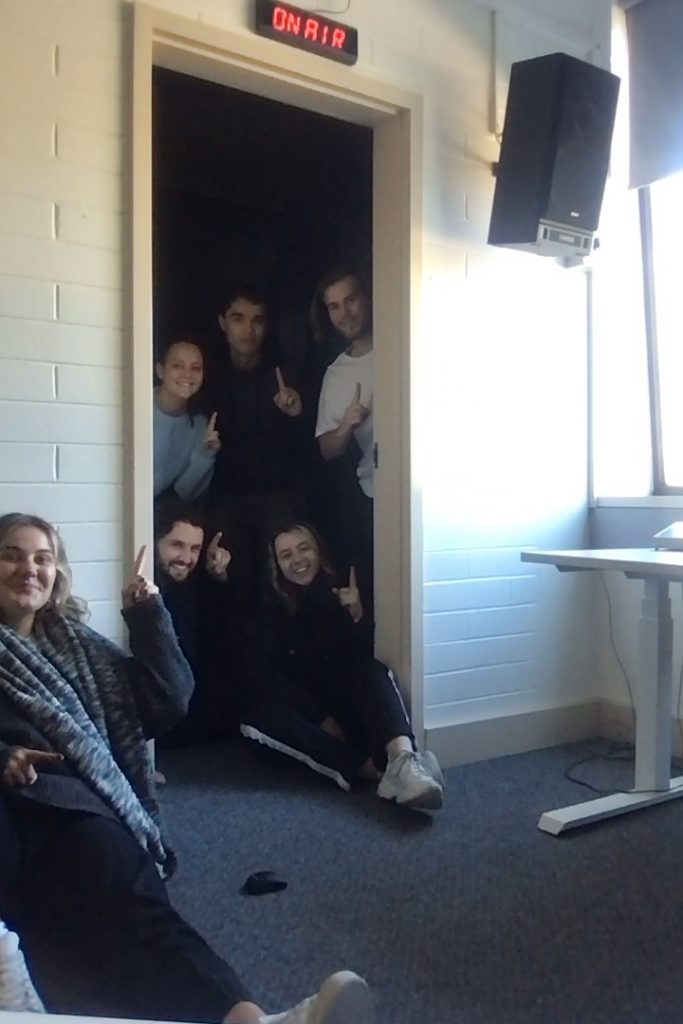
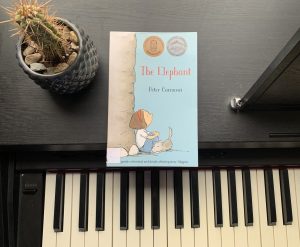
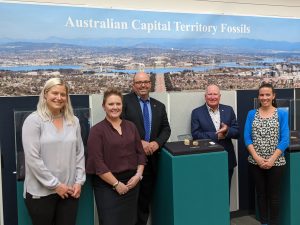

Be the first to comment!